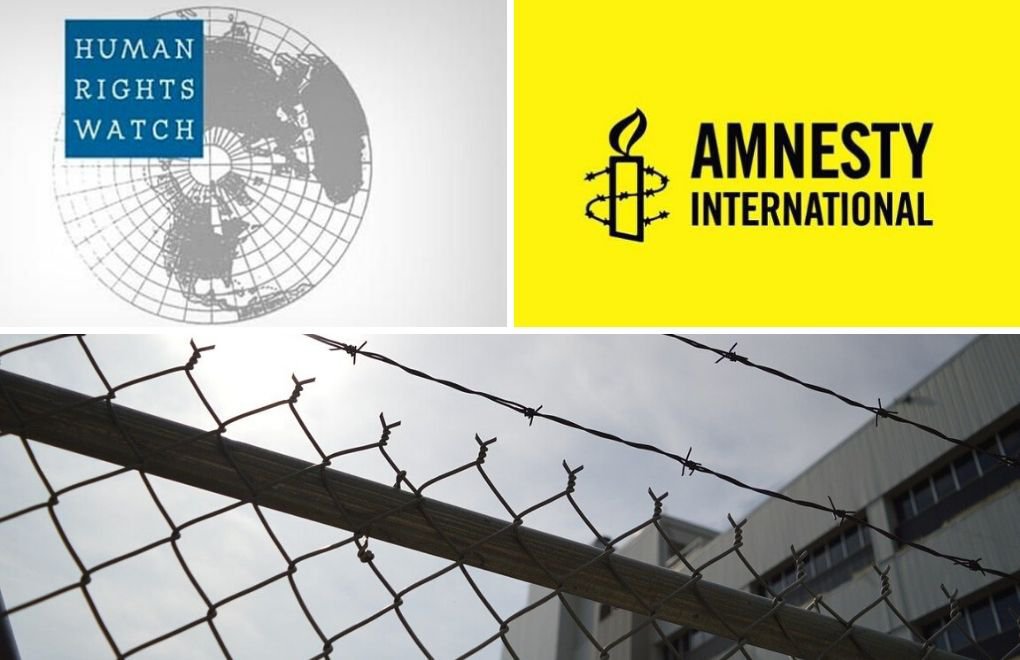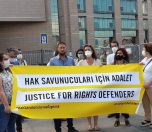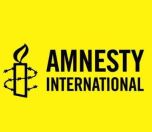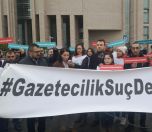Amnesty International and Human Rights Watch (HRW) have expressed their concerns about "the sharp decline in respect for fundamental rights and freedoms in Turkey" in a joint letter.
Ahead of their Foreign Affairs Council discussion on European Union (EU)-Turkey relations scheduled for July 13, they have addressed a letter to High Representative of the EU for Foreign Affairs and Security Policy and Vice President of the European Commission Josep Borrell as well as the Minister of Foreign Affairs of EU member states.
The letter of the organizations has noted that the "Foreign Affairs Council will take place against the backdrop of a protracted clampdown on human rights in Turkey as well as the government's continued control of the judiciary and willingness to weaponize it against perceived critics."
Accordingly, the Human Rights Watch and Amnesty International have demanded that "the EU and its Member States address the sharp decline in respect for fundamental rights and freedoms in Turkey and urge the government to carry out genuine reforms."
"The grave deterioration of the human rights situation in Turkey since 2016 has shown no sign of respite," the letter has emphasized further and cited a series of examples of judicial proceedings against rights defenders, journalists, politicians and lawyers among many others:
'Executive control, political influence over judiciary'
"Most recently, on July 3, a court in İstanbul dealt another crushing blow to independent civil society when it issued convictions against four out of the eleven human rights defenders on trial in the emblematic Büyükada case.
"In another emblematic case, on February 19, 2020 the Istanbul chief prosecutor's office requested the re-detention of prominent civil society leader and human rights defender, Osman Kavala hours after he and eight other defendants were acquitted on trumped-up charges related to the mass "Gezi Park" protests that swept the country in 2013.
"These emblematic cases illustrate the extent of executive control and political influence over the judiciary in Turkey, leading courts to systematically accept bogus indictments and to detain and convict individuals and groups that the government regards as political opponents without compelling evidence of criminal activity. This has included journalists, academics, lawyers and human rights defenders.
The bill on 'multiple bar associations'
"Prosecutions and convictions of lawyers, including some focused on human rights, exemplify the abusive use of terrorism charges.
"A new legal amendment due to be voted on in Turkey's parliament in the coming days aims to diminish the power of the largest and leading bar associations in Turkey who carry out most of the human rights monitoring and public reporting.
"The amendments will allow multiple, competing bar associations to be established and dramatically reduce the number of delegates that represent the larger bars within the Union of Turkish Bar Associations.
Crackdown on journalism, allegations of torture...
"The COVID-19 crisis has added a new layer to the crackdown on media freedom in Turkey with journalists being targeted across the country under the guise of combating misinformation.
"A rise in allegations of torture or inhuman or degrading treatment in police custody and prison over the past four years has set back Turkey's earlier progress in this area. Prosecutors do not conduct meaningful investigations into such allegations and there is a pervasive culture of impunity for members of the security forces and public officials implicated.
Law on criminal enforcement, refugees...
"Many of Turkey's prisons are overcrowded, with tens of thousands of individuals on remand or convicted of terrorism-related charges.
"Although a law adopted in April 2020 allowed for the early and conditional release of up to 90,000 prisoners in the face of the COVID-19 pandemic, it excluded the thousands of inmates convicted on trump-up terrorism charges, including journalists, politicians, rights defenders and people held in pre-trial detention.
"Among them are people over the age of 60, including rights defender, Osman Kavala and novelist and former newspaper editor, Ahmet Altan. Politicians in prison include Selahattin Demirtaş, who is taking medication for a heart condition, and Gültan Kışanak.
"Finally, in light of ongoing discussions about the implementation of the 2016 EU-Turkey Statement, it is important to note that Turkey does not meet the EU's criteria for a safe third country to which an asylum seeker can be returned. This includes respect for the principle of non-refoulement."
Letter makes 4 requests from EU Ministers, BorrellIn the light of these developments and background information, the HRW and Amnesty International have called on the EU and its member states to "put respect for human rights and civil society at the centre of EU-Turkey relations, including by": 1) Addressing the sharp decline in respect for fundamental rights and freedoms in Turkey during the 13 July Foreign Affairs Council and any public communications around the meeting. This includes addressing the government's deliberate and widespread attempt to dismantle civil society using national security as a pretext; the government's continued control of the judiciary and willingness to weaponize it against perceived critics including journalists, academics, lawyers and human rights defenders; the deepening restrictions on media freedom in Turkey including in the context of COVID-19; the rise in allegations of torture and ill-treatment in police custody and prisons; the situation in Turkey's prisons in the face of the COVID-19 pandemic. 2) Publicly reaffirming that respect for human rights and a thriving, independent civil society are essential to EU-Turkey relations at all levels and remains a prerequisite to progress in areas where Turkey seeks normalization: Including, that an upgrade of the EU-Turkey Customs Union will depend on improvements in the human rights situation and Turkey's fulfilment of EU established benchmarks. 3) Using all upcoming exchanges with the Turkish authorities to seek tangible human rights commitments and genuine reforms including towards:
4) Ensuring that the human rights of refugees, asylum seekers and migrants are central to the negotiation and implementation of any formal or informal migration cooperation agreement with Turkey, including by:
|
(SD)






-132.jpg)






